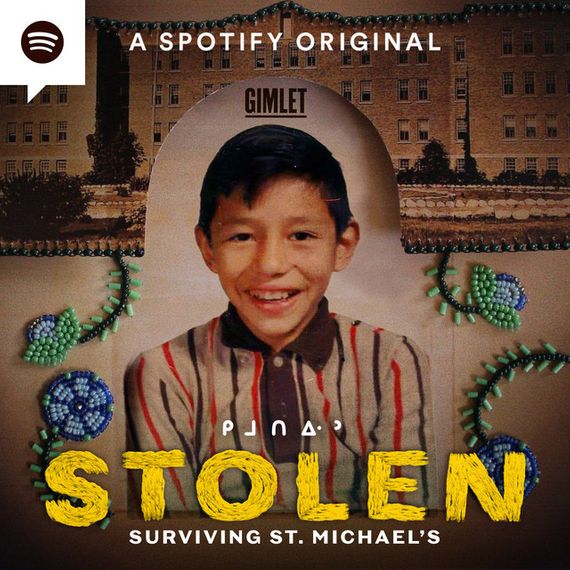
Hey, all. I’m not sure how the official start of the summer is usually declared (does it have to do with the position of the sun?), but since we’ve just wobbled out of an extended Memorial Day weekend, tell me what you’re listening to. You can reach me at [email protected] or find me on Twitter.
Slow Burn: Roe v. Wade
End times.
Listen here.
Slow Burn returns in heavy, timely fashion, as is customary for Slate’s flagship audio-documentary franchise. Susan Matthews, usually the site’s news director, leads this iteration of the series, setting out with her team to revisit the sociopolitical context of Roe v. Wade — the landmark 1973 American abortion ruling that, as you are probably familiar, is facing an imminent, almost certain overruling by the Supreme Court.
With just four installments, this season will be brief. The opening chapter, which drops today, dives into the story of Shirley Wheeler, the first woman to be convicted of manslaughter for getting an abortion. The 1971 case drew national attention and made Wheeler into the public face of the American fight over reproductive rights. (Her image adorns the season’s cover art.) In traditional Slow Burn fashion, the team roots itself in the narrative of the podcast’s subject as a way to illustrate the stakes at hand — in this case, of getting an abortion before Roe v. Wade — offering, perhaps, a cyclical window into what could very well lie ahead of us.
The second episode jumps to the other side of the struggle, unpacking the influence of John C. and Barbara Willke, the husband-and-wife duo whose book, Handbook on Abortion, would become central to the so-called right-to-life movement. The third recounts the experiences of Ann Hill, the Yale Law School student who mounted a campaign in the late ’60s to challenge Connecticut’s restrictive abortion laws — an effort that was not only successful, but one that laid a foundation for the legal architecture of Roe v. Wade. Finally, the season visits the Supreme Court ruling itself via the perspective of Judge Harry Blackmun, who wrote the majority opinion.
The very best seasons of Slow Burn unspool events of the past to place us within the rhythms of history. But with this particular iteration, things feel less like a rhyme and more like a repetition — there are few greater indications of this country’s backwards slide, one that seems to tilt into a primordial abyss.
Slow Burn is available on all platforms. Produced by Samira Tazari and Sophie Summergrad, with research by Sol Werthan.
Stolen: Surviving St. Michael’s
Family ghosts.
Listen here.
Between two seasons of Missing & Murdered (with the CBC) and one season of Stolen (with Gimlet), Connie Walker has built a robust body of narrative podcast work dedicated to reinvestigating injustices against Indigenous women. Though typically packaged with classic true-crime aesthetics, Walker, who is Cree and from Okanese First Nation, has consistently built productions that capitalize on the genre’s inherent appeal while keeping a steady hand on the bigger picture about state violence and Indigeneous people. To pick up a Connie Walker series is to be presented with extended, thorny looks at the many ways in which native populations are gravely maligned or simply brushed aside by Canadian and American governments.
With Surviving St. Michael’s, Walker turns inward. The instigating mystery here revolves around a story that she recently learned about her father, who had been a police officer. It was a tale of violence and pain. Sometime in the ’70s, her father was patrolling a particularly rural part of the Canadian countryside when he spotted a car swerving on the road, pulled it over — and proceeded to beat the driver to a pulp. Here’s the turn: Walker’s father had recognized the driver as one of the priests who abused him at one of the country’s notorious “residential schools,” set up by the Canadian government to systematically isolate Indigenous children from their native culture and assimilate them into the country’s dominant Christian societal structure.
We follow Walker as she traces the story through her family. We hear extensive tape of her sitting down with relatives to recount her father’s memories and narrative threads — an investigation via oral history. Where this road takes her, and how she will process what she finds, is the open question that drives this season forward.
Stolen is only available on Spotify. Produced by Chantelle Bellrichard, Max Green, and Anya Schultz. Additional reporting by Betty Ann Adam. Edited by Devon Taylor. Composed and engineered by Emma Munger. Also features work by Heather Evans and Ellen Frankman.
Meanwhile …
➽ Very, very sorry to hear that Minnesota Public Radio is shutting down APM Reports, its long-form investigative- and documentary-journalism unit that’s responsible for, among other things, the award-winning In the Dark series and, more recently, Sent Away, its excellent collaboration with KUER and the Salt Lake Tribune that investigated Utah’s deeply troubling multimillion-dollar “troubled-teen industry.” The news was first reported by the Star Tribune, which also noted that the fates of the unit’s 18 staffers — whether they’ll be reallocated or dismissed — remains unclear. However things shake out, this team deserved a better send-off than the cookie-cutter corporate announcement it got.
➽ If you’re looking for more audio docs on the state of American abortion beyond the new season of Slow Burn, consider PRX and WWNO’s Banned, which tracks the Mississippi 15-week abortion ban that sits at the center of the Supreme Court’s leaked decision to strike down Roe v. Wade.
➽ Normal Gossip is finally back with a new season and a sold-out New York live show that takes place tonight! Also, it seems, possible plans for future live shows in other cities …
➽ Rough Translation, NPR’s globally minded narrative podcast series, is also returning today with a new season, dubbed “@Work,” all about the way the conversation around more equitable work, labor, and workplaces are playing out in other countries.
Elsewhere …
• I’ve got a lot on my TV plate to stream right now — I’m currently working my way through For All Mankind, which I completely missed, ahead of the third-season drop in a few weeks, along with this season of Top Chef — so I’m probably going to sit out the new Stranger Things. I will, however, be keeping up through recaps from the great Maggie Fremont. What better way to live than vicariously? Ordinarily, I’d check in with a show through podcast recaps as well, but man, my listening plate is also backed up right now.
• I might be busy, but you bet your ass I made time for Top Gun: Maverick this weekend, and that shit absolutely ripped. My only real complaint is the lack of a pornstache on Glen Powell, because apparently you can’t have two men in the same movie (Miles Teller being the other) sporting the exact same ’stache, especially when they’re locked into testosteronic rivalry. A shame. Anyway, like all those men over 40 at CinemaCon, I teared up at this sheer beauty of a Hollywood production, this strange mirror to Nicole Kidman’s famous AMC theater ad, and then I reread Bilge Ebiri’s meditation on Top Gun: Maverick being the beginning of the end of Tom Cruise, and lo: I sniffled all over again. Somehow, heartbreak feels great at 10Gs, my friends.
• More Inside? Why yes, yes indeed.
Post-Script
… Yeah, okay, I also set time aside for the new Obi-Wan Kenobi series, which I thought was just fine. Though I suppose it’s worth disclosing that I’m the sort of person who thought that the Trade Federation and galactic taxation were the best thing about the Star Wars universe. Of course Jedis were the people dispatched to settle political disputes. What else do you think they do?
And that’s a wrap for 1.5x Speed! Hope you enjoyed it. We’re back next week, but in the meantime: Send podcast recommendations, feedback, or just say hello at [email protected].
More 1.5x Speed
- How YouTube Sees Podcasting
- The Podcasts Caitlin Pierce Is Listening To Right Now
- The Longform Episodes We Won’t Forget




